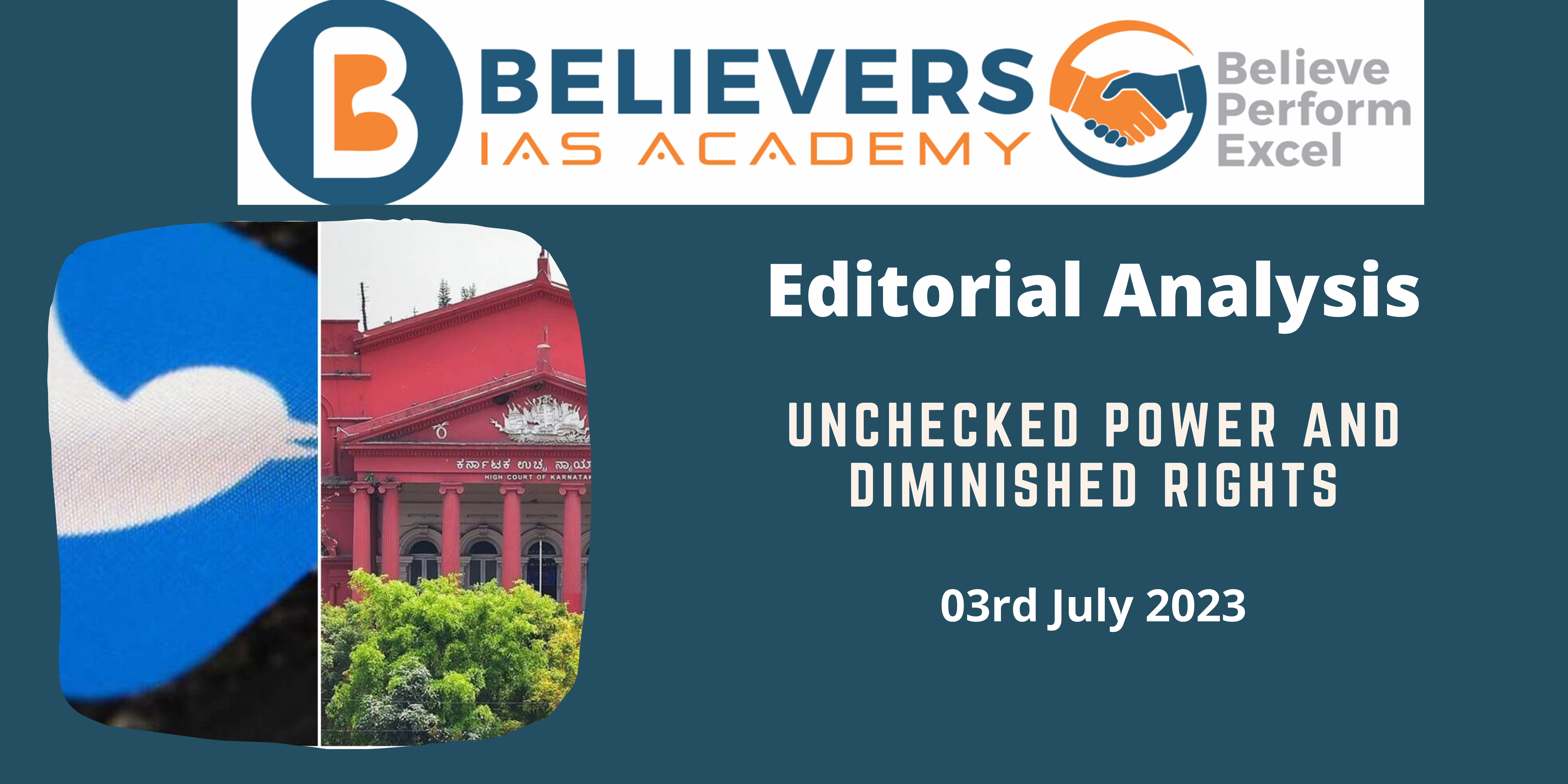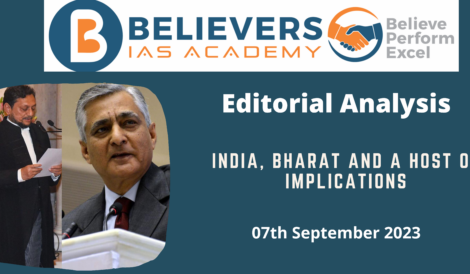Unchecked Power and Diminished Rights
Context:
The Karnataka High Court’s recent dismissal of Twitter’s challenge against blocking orders by the Ministry of Electronics and Information Technology (MeitY) raises concerns about the right to free speech and unchecked state power in content takedowns.
Relevance:
GS-02 (Government Policies and Intervention) (Fundamental Rights)
Prelims:
- Fundamental rights
- Supreme Court on freedom of speech
- Free Speech and the Chilling Effect
Mains Questions:
- Analyze the implications of the Court’s interventions on challenging to block orders in the context of free speech and digital rights in India. (150 words)
Dimensions of the article:
- Ignorance of Procedural Safeguards
- Disregard for Users’ Rights
- Free Speech and the Chilling Effect
Ignorance of Procedural Safeguards
- The constitutionality of Section 69A and the Blocking Rules was upheld by the Supreme Court in the landmark case of Shreya Singhal vs Union of India.
- The court emphasized the need for sufficient procedural safeguards, including providing a reasoned order and notice to intermediaries and content originators before blocking.
- However, the Karnataka High Court’s recent judgment contradicts the established precedent by asserting that notice to users of the content is not required, and even if reasons are recorded, they need not be conveyed to the user.
- This lack of procedural safeguards grants the state unfettered power to take down content without oversight, denying affected entities any recourse to challenge such actions.
Disregard for Users’ Rights
- While the High Court acknowledged that blocking orders affect users’ rights, it argued that Twitter need not provide mandatory notice under Rule 8 of the Blocking Rules. The court’s view assumes that users can seek appropriate remedies without identifying the lack of access to the information necessary for such redressal.
- Contrarily, the refusal to acknowledge human rights activist Aakar Patel’s application to intervene in the case shows a dismissive approach towards users’ grievances. The High Court’s insistence on user identification for notice purposes ignores the practical difficulties faced in obtaining blocking orders, especially under the pretext of confidentiality requirements.
Free Speech and the Chilling Effect
- The imposition of reasonable restrictions on freedom of speech, as per Article 19(2) of the Constitution, demands a direct link between speech and potential threats to public order. However, the High Court’s judgment cited “fake news” and “misinformation” as grounds for blocking, which lack constitutional basis.
- This reliance on curbing “fake news” to restrict free speech echoes a growing trend of disproportionate Internet shutdown orders in various regions. Such actions, justified under the guise of national security, pose a significant threat to fundamental rights. Moreover, the wholesale blocking of Twitter accounts amounts to unconstitutional pre-censorship and has the potential to create a chilling effect on users’ freedom of speech on digital platforms.
Way Forward:
To uphold the principles of free speech and protect digital rights, it is imperative to address the issues highlighted by the Karnataka High Court’s judgment. The following steps are recommended:
- Review Procedural Safeguards: Revisit Section 69A and the Blocking Rules to ensure robust procedural safeguards that guarantee transparency and accountability in content takedowns.
- Reassert Constitutional Basis: Ensure that any restrictions on free speech under Section 69A align strictly with the grounds specified in Article 19(2) of the Constitution.
- Strengthen User Protections: Recognize the importance of user rights and enable platforms to provide adequate notice and redressal mechanisms for affected individuals.
Conclusion:
The Karnataka High Court’s judgment, dismissing Twitter’s challenge and imposing hefty costs, raises significant concerns about the state’s unchecked power in content takedowns. By undermining procedural safeguards and relying on unsupported grounds, the judgment compromises free speech and erodes digital rights. It is crucial to address these issues, safeguard constitutional principles, and ensure that the state does not wield unrestricted power to suppress unfavorable content.




